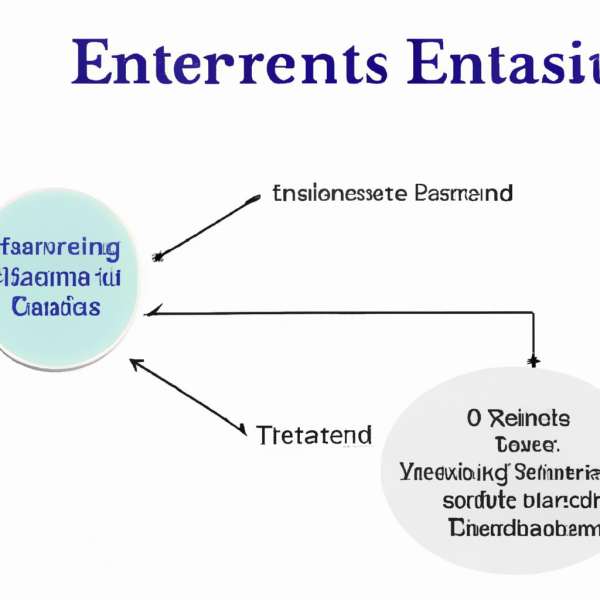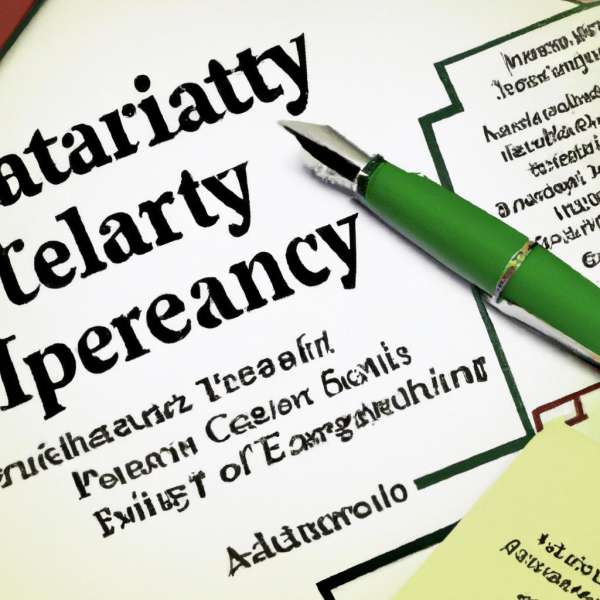In the realm of property ownership, the concept of joint tenancy often emerges as a beacon of shared responsibility and mutual benefit. Imagine two individuals embarking on a journey together, their paths intertwined not only by their personal connections but also by their investment in a tangible asset—a home, a piece of land, or perhaps a vacation property. Joint tenancy, an arrangement that allows co-owners to share not only the joys of ownership but also the burdens of management, has captured the attention of many seeking a harmonious approach to real estate. As we delve into the benefits of this unique form of property ownership, we will explore the ways in which joint tenancy can foster collaboration, simplify inheritance, and enhance financial strategies, all while providing a secure environment for building lasting legacies. Join us as we unpack the myriad advantages that make joint tenancy a compelling choice for couples, families, and friends alike.
Understanding the Essentials of Joint Tenancy
Joint tenancy is a popular form of property ownership that is characterized by several distinctive features, making it an appealing choice for families and partners alike. At its core, joint tenancy involves two or more individuals owning a property together, each possessing an equal share. One of the most significant advantages of this arrangement is the right of **survivorship**, which ensures that upon the death of one tenant, their share automatically transfers to the surviving tenant(s). This seamless transition helps eliminate the complexities of probate, making estate management more efficient.
Within this ownership structure, it’s crucial to recognize the concept of **unity** among tenants. This means that all parties must acquire their interest in the property at the same time, through the same deed, and have equal shares. The stability and clarity of this arrangement foster a sense of shared responsibility and mutual cooperation. Moreover, joint tenancy can also facilitate financial planning, as all parties typically share in both the benefits and costs associated with property ownership.
Here are some key features that highlight why joint tenancy might be the right choice for certain property owners:
- Automatic Transfer of Ownership: Upon the death of a tenant, their share is automatically passed on to the surviving tenants without the need for legal proceedings.
- Equal Shares: Each tenant holds an equal interest in the property, minimizing disputes regarding ownership and responsibilities.
- Clear Rights: The rights of each tenant are clearly defined, reducing potential conflicts and enhancing collaboration when managing the property.
- Simplified Estate Planning: Joint tenancy can simplify estate planning, as it often bypasses complex probate processes.
Despite its advantages, potential joint tenants should weigh their options carefully. Below is a simple comparison of joint tenancy versus tenancy in common, another common form of co-ownership:
| Aspect | Joint Tenancy | Tenancy in Common |
|---|---|---|
| Ownership Shares | Equal shares among all tenants | Shares can be unequal |
| Survivorship Rights | Yes, upon death | No, shares can be inherited |
| Purchase Time | Acquired together | Can be purchased at different times |
| Transfer of Interest | Requires consent from all owners | Can sell or transfer without consent |

Enhancing Estate Planning through Joint Tenancy
Joint tenancy serves as a robust tool in the realm of estate planning, offering several advantages that can streamline the transfer of property and enhance family security. When multiple parties hold property as joint tenants, they share equal ownership rights, which comes with the invaluable benefit of right of survivorship. This means that, upon the passing of one joint tenant, their share automatically transfers to the surviving tenant(s) without the need for probate, leading to:
- Speedy Transfers: The transition of property ownership occurs seamlessly, allowing heirs immediate access to assets.
- Cost-Effectiveness: Bypassing the probate process can save money on legal fees and reduce overall estate settlement costs.
- Privacy Preservation: Joint tenancy arrangements are not part of public probate records, keeping family affairs confidential.
Furthermore, incorporating joint tenancy into your estate plan can simplify management during a joint tenant’s lifetime. It allows for easier access to property and decision-making when one party is unable to act—think of situations involving health issues or sudden incapacity. This collaborative access to assets also encourages discussions about estate management and future planning among family members, fostering a sense of responsibility.
| Joint Tenancy Benefits | Without Joint Tenancy |
|---|---|
| Right of Survivorship | Probate Required |
| Quick Property Transfer | Time-Consuming Process |
| No Public Disclosure | Public Record Visibility |

Maximizing Asset Protection and Tax Benefits
When considering the advantages of joint tenancy, one of the most compelling aspects is its potential for **asset protection**. Joint tenancy allows two or more parties to hold property together, creating a survivorship right that bypasses the often cumbersome probate process. In the event of a co-owner’s death, the surviving tenants automatically inherit their share. This feature can significantly shield assets from unnecessary court proceedings and reduce legal fees, ensuring your hard-earned assets are preserved for your beneficiaries in a timely manner.
Beyond asset protection, joint tenancy can also yield considerable **tax benefits**. In some jurisdictions, the transfer of property into a joint tenancy may not trigger capital gains taxes at the time of transfer. Additionally, since assets in joint tenancy are subject to a step-up basis upon death, it allows the surviving tenant to potentially lessen their tax burden on inherited property. This could be especially beneficial for real estate investments, where appreciation can lead to significant tax liabilities if sold at a profit.
Here are some key points to consider regarding the implications of joint tenancy:
- Ease of Transfer: Allows assets to pass outside of probate.
- Unified Ownership: All owners share equal rights to the property.
- Investment Opportunities: Encourages co-investment in real estate and other assets.
- Homeownership Advantages: Facilitates family home sharing without complicated legalities.
| Benefit | Description |
|---|---|
| Probate Avoidance | Automatic transfer to surviving tenant, saving time & costs. |
| Tax Efficiency | Potential for step-up basis; less tax on property appreciation. |
| Shared Responsibility | Encourages financial collaboration and shared management of assets. |
Ultimately, while joint tenancy offers distinct advantages for both **asset protection** and **tax advantages**, it is essential to evaluate your individual circumstances and consult with a legal or financial advisor. The right arrangement can lead not only to a smooth transfer of assets but can also optimize financial planning strategies for you and your co-owners.

Navigating the Challenges of Joint Tenancy Arrangements
Joint tenancy arrangements can provide numerous advantages, but they also come with their own set of complexities that individuals must navigate carefully. One primary challenge is the potential for conflict between co-owners. **Communication** is key in these situations; maintaining open dialogue about expectations can help mitigate misunderstandings. Regular discussions about property management, financial contributions, and personal use can foster a collaborative environment.
Another challenge often arises in the context of decision-making. Joint tenants must reach consensus on significant choices, such as selling the property or making substantial renovations. To streamline this process, it’s beneficial to establish a **decision-making framework** at the outset of the arrangement. This may include setting guidelines that outline how decisions will be made and what happens if consensus cannot be reached. Without clear agreements, the partnership may encounter roadblocks that could complicate the relationship.
Additionally, the implications of joint tenancy on estate planning cannot be overlooked. While joint tenancy can simplify the transfer of ownership upon death, it can also create unexpected complications if one co-owner passes away or if their financial situation changes. It’s crucial for joint tenants to consult with legal and financial advisors to understand how these arrangements fit into their overall estate plans.
| Challenge | Solution |
|---|---|
| Conflict between co-owners | Foster open communication |
| Decision-making hurdles | Establish a decision-making framework |
| Estate planning complexities | Consult legal and financial advisors |
In Retrospect
joint tenancy offers a unique blend of benefits that can enhance both estate planning and everyday living. By fostering shared ownership, it not only simplifies the transfer of assets but also promotes a sense of collaboration and partnership among co-owners. Whether you’re considering joint tenancy for real estate, bank accounts, or other significant assets, understanding its nuances can help you make informed decisions that align with your financial goals and personal values. As with any financial strategy, it’s vital to consult with professionals who can guide you through the intricacies, ensuring that your choice fits seamlessly into your overall estate plan. Ultimately, joint tenancy can serve as a powerful tool, empowering individuals and families to navigate the complexities of ownership together while offering peace of mind for the future.


